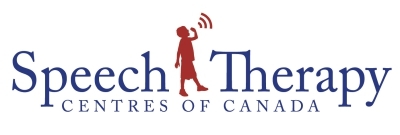Child Speech Therapy Toronto
Months
At 12 months, your child should be able to:
- Anticipate events (e.g., a cup/bottle means getting a drink)
- Begin imitating sounds, words and actions
- Recognize his or her name
- Show interest in simple picture books
- Follow simple directions
- Point out objects of personal interest to an adult (like their favourite toy)
Months
Months
Months
At 18 months, your child should be able to:
- Use at least 15 words
- Enjoy solitary play
- Have a limited sense of sharing
- Identify some body parts
- Ask simple questions such as “What’s that?”
- Pretend to feed a doll
- Recognise pictures when named
- Refer to himself or herself by name
Months
At 24 months, your child should be able to:
- Follow simple directions
- Put toys away upon request
- Understand new words rapidly
- Use a vocabulary of 200-300 words
- Use two-word phrases such as “mommy up” or “baby sleep”
Months
Months
Months
At 3 years, your child should be able to:
- Enjoy make-believe play
- Follow two step commands
- Have a 900–1000 word vocabulary
- Understand the difference between pictures and print
- Play in groups with other children
- Share toys for short periods of time
- Understand simple questions such as “Who?”, “What?”, “Where?” and “Why?”
Months
At 4 years, your child should be able to:
- Ask a lot of questions
- Categorize objects (e.g.: understand that an apple is a fruit, and a shirt is a piece of clothing)
- Use a 1500 word vocabulary
- Match some letters with the sounds they represent (e.g., letter ‘t” sounds like “tuh”)
- Play and take turns in playing with others
- Rely on order of words for interpretation
- Enjoy role playing
- Tell stories with a beginning and an end
- Use complex sentences
Months
Months
Months
At 5 years, your child should be able to:
- Follow game rules
- Discuss feelings
- Follow three step commands
- Use proper grammar 90% of the time
- Use about 2000 words
- Show interest in group activities
- Understand the concepts of before and after
- Speak clearly 90-100% of the time
- Communication challenges should be addressed as soon as possible in a child’s life. However, you also will have to make a decision about what type of speech therapy is best in your situation.
And, speech therapy can be fun! At our centres, we use videos, pictures, iPads or even video games to help children with their speech and language challenges.We work hard to tailor our therapies to each child’s unique needs. If you feel that your toddler or child may be challenged in his or her communication, we’re here to help.
Proudly serving the following locations through our Richmond Hill Ontario office:
Bradford | Vaughan | Maple | Aurora | Woodbridge | Oak Ridges | Stouffville | Markham | North York
Proudly serving the following locations through our Brampton Ontario office:
Mississauga | Oakville | Milton | Etobicoke | Georgetown | Brampton | Burlington
905-886-5941
Aurora | Newmarket | Markham | Thornhill | GTA | Mississauga | Brampton | Burlington | Ajax | Oshawa | Pickering | Ottawa
Speech Therapy Centres of Canada Ltd. is in compliance with the Accessibility for Ontarians with Disabilities Act, 2005.
Our Accessibility Customer Service Policy is available upon request. Please feel free to contact us for more information: oadainfo@speechtherapycentres.com

